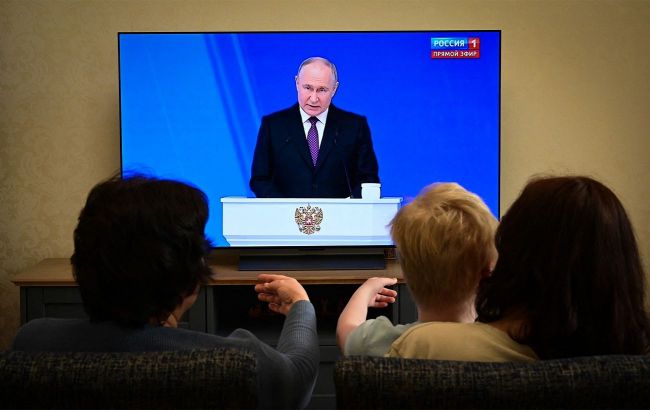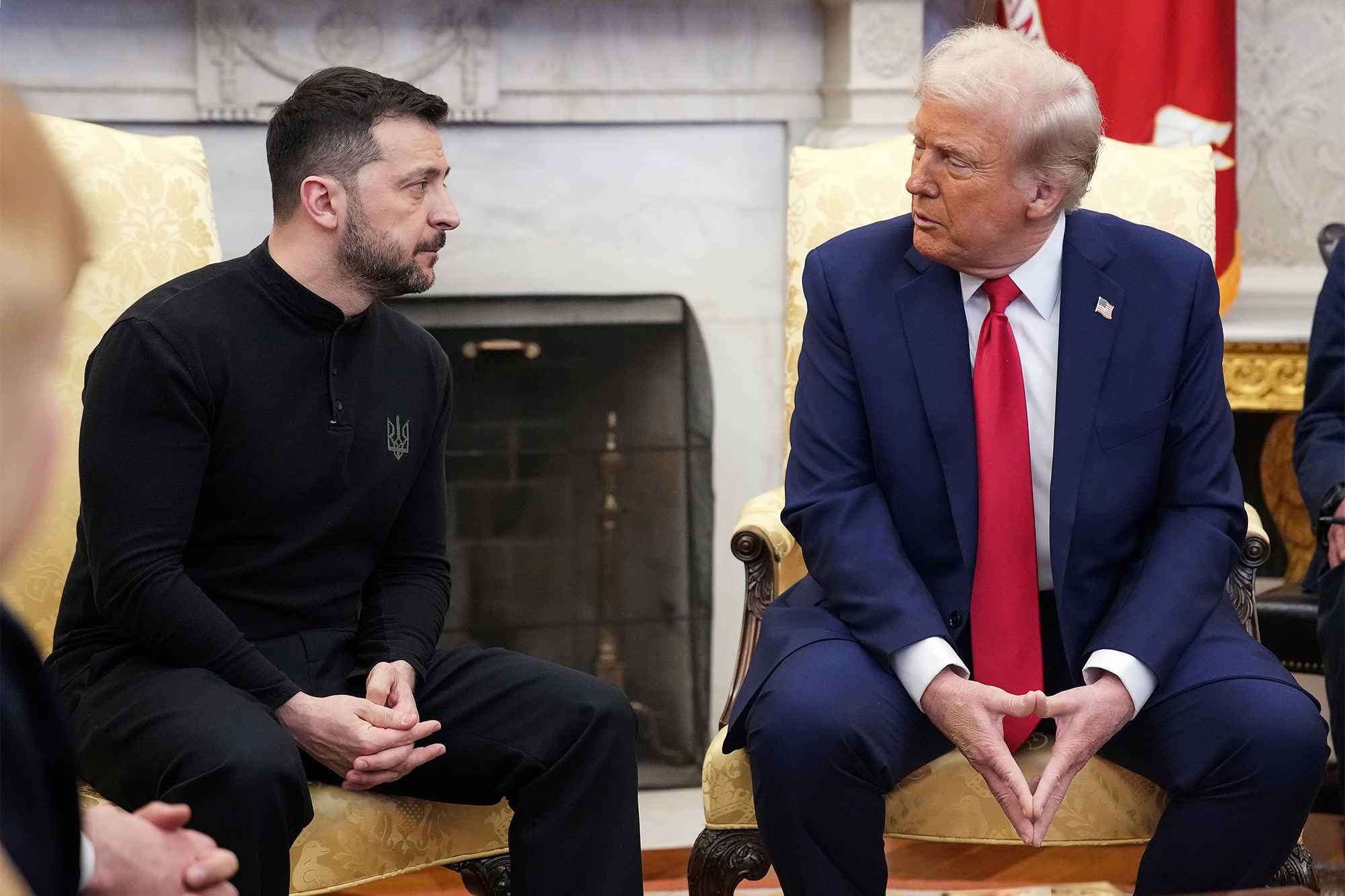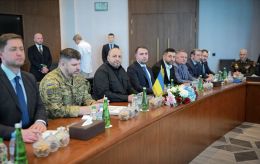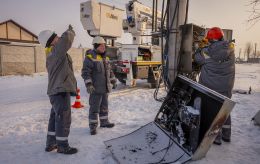Russia’s 2025 disinformation playbook: How Kremlin plans to manipulate global perception
 What messages will be spread by Russian propaganda (photo: Getty Images)
What messages will be spread by Russian propaganda (photo: Getty Images)
The enemy demonstrates flexibility in the information war and quickly adapts to new conditions. We must be able to respond promptly and understand what to expect from the adversary. Ukrainian Armed Forces officer and political scientist Andrii Tkachuk explains how Russia will attempt to destabilize public opinion through information warfare.
When negotiations are ongoing, Russia tries to create an advantageous information front for itself by spreading narratives about "encirclements in Kursk" or "breakthroughs at the front."
Russia is waging war against us according to the military doctrine of the Chief of the General Staff of the Russian Armed Forces, Valery Gerasimov. This doctrine envisions a comprehensive approach to warfare that combines kinetic (military) and non-kinetic (hybrid, including information) methods. According to this doctrine, the ratio of non-kinetic (hybrid) to kinetic (military) actions is approximately 4:1.
For example, a single attack using Shahed drones on Kyiv may be accompanied by several information narratives: "electricity is being transported away in train cars," "Ukraine must surrender," "Ukraine is unable to protect its civilians," "Russians only strike military targets."
Overall, the Kremlin aims to undermine Ukrainian unity by destroying the social contract between the people and the government. To achieve this, Moscow prioritizes several campaigns. Let's examine the key ones.
Delegitimization of President Volodymyr Zelenskyy and state leadership
The Kremlin will continue to spread narratives about the "illegitimacy of power" in Ukraine to weaken international support for the country and divide Ukrainian society.
The active phase of this campaign began after Putin's pseudo-elections in Russia last year. For instance, at that time, the Moscow propaganda outlet "Russia Today" spread false information claiming that the Parliamentary Assembly of the Council of Europe (PACE) urged Ukraine to hold elections during martial law. In reality, the Assembly supported the need to adhere to the Ukrainian Constitution, which restricts the possibility of holding elections during wartime.
In 2025, this campaign will intensify, reinforced by Russia's stance in negotiations with the United States, demanding elections in Ukraine.
_1.jpg)
The Kremlin is trying to undermine the unity of Ukrainians (t.me/UkrzalInfo)
At the same time, according to sociologists, 77% of Ukrainian citizens oppose elections in the event of a temporary ceasefire without security guarantees, supporting them only after the complete end of the war or upon receiving appropriate guarantees.
Conflict between military and political leadership
One of the key directions of Russia’s disinformation campaign in 2025 will be the creation and escalation of an alleged conflict between Ukraine’s military and political leadership.
A recent example is a publication on a Polish information and blogging platform where any user can post articles. In this case, an unknown Polish expert, Marcin Wi, published a blog on an open platform, claiming to have inside details of negotiations between Ukrainian and American delegations in Jeddah regarding a potential ceasefire.
The key thesis proposed by this unknown Polish author is that Andriy Yermak allegedly complained that Ukrainian intelligence officers Budanov and Maliuk do not want to end the war, and therefore he wishes for their dismissal.
Firstly, the level of access this Polish author has to such information raises serious doubts.
Secondly, this is how Russia attempts to launch yet another 2025 disinformation campaign to create a conflict between the military and political leadership of Ukraine.
However, the actual situation significantly differs from these propaganda narratives. Military intelligence leadership enjoys a high level of trust both in society and within the President's Office, primarily due to successful operations.
Alleged desire of Ukrainian leadership to secure personal safety in exchange for natural resources
A significant challenge arises from discussions surrounding signing a "rare earth agreement" between the United States and Ukraine. The Trump administration is attempting to impose unfavorable conditions on Ukraine; however, the Ukrainian government has clearly outlined "red lines" in this process, both in financial aspects and in terms of influence distribution.
Russia will undoubtedly exploit the complexity of negotiations regarding this agreement and promote narratives such as "Zelenskyy is ready to sign the agreement, surrender Ukraine, and flee abroad."
The key goal of this campaign is to further complicate the already difficult negotiations with Washington.

Russia will take advantage of the complexity of the Ukraine-US negotiations on the rare earth deal and promote its narrative (Getty Images)
War crimes committed by Ukraine against its people, particularly in temporarily occupied territories
Russian disinformation regarding alleged war crimes by Ukraine is one of the main elements of the Kremlin's propaganda campaign. This strategy is aimed at convincing the international community that Ukraine is supposedly violating international law and terrorizing its citizens in the temporarily occupied territories.
Russian media regularly accuse Ukrainian forces of allegedly using prohibited weapons, shelling civilians, and "mistreating civilians." However, such claims lack credible evidence and are often based on manipulations or fabrications.
Conclusion
Russia continues to distort reality, rewriting history, appropriating our cultural heritage, opening fake museums, and shifting responsibility for its crimes onto Ukraine.
All these campaigns rely on distorting events through proxy "opinion leaders" and are disseminated via Kremlin-controlled resources and bot networks.
The information war exploits weak points, and for Moscow, democracy and freedom of speech in Ukraine are such vulnerabilities. Therefore, our main task is to prevent an information vacuum, which creates space for manipulations.

